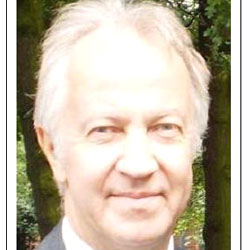Tokyo 2020 Bid Brings a More Sporting Approach to Previous Attempts
March 5, 2013
A different mood music accompanies Tokyo’s bid to host the Olympic Games in 2020 compared with 2016. Not that it may be evident to the IOC members being ferried around the city this week: none of them figured in the evaluation commission last time around.
The contrast was evidenced most notably when the city’s new governor, Naoki Inose, indulged in a game of tennis with Paralympian Shingo Kanieda for the benefit of Sir Craig Reedie and his team.
It is impossible to imagine gubernatorial predecessor Shintaro Ishihara contemplating such an exhibition. But Inose, though personally unable to swing any votes one way or another, demonstrated a rebalancing of bid perceptions from within.
Ishihara – to put it simplistically – saw winning the Olympics as the perfect vehicle to finance his pet project of regenerating and redeveloping the Bay area.
This was not necessarily misguided: after all, it was precisely a campaign strategy which had worked winningly for London. But Ishihara appeared to lose sight of the sporting heart of the Olympic project and Tokyo duly lost out to Rio de Janeiro in the second round of voting.
Tokyo may lose again, to Madrid (unlikely) or Istanbul (more likely). But this time it would not be for losing the sporting plot. Inose, who competed his first marathon last year at 65, has seen to that.
“Last time,” says Inose, “we emphasised environmental priorities, which is a right thing to do. But the IOC members are former sportsmen and the Olympics are a celebration of sports so the enjoyment and passion for sport is very important looking towards 2020.”
Seeing Tokyo’s bid at first hand is to appreciate the puzzle confronting every would-be host: fitting the same programme into the same number of venues for a similar number of spectators but all within an utterly different urban environment from any of its predecessors.
Tokyo 2020 would look very different to London 2012 which offers the simplest benchmark for comparison.
The Japanese envisage almost all venues within a city-centre, 8km radius. This obviates the need for a London-style Olympic Park. A total of 37 venues are projected of which 15 exist and 22 must be built, half of them permanent, half of them temporary (London used 28 venues including nine out-of-town).

Conveniently, Tokyo has no need to factor in historically iconic venues such as Lord’s, Wimbledon, Horse Guards Parade, Greenwich Park.
The heart of the action already exists, sort of.
This is the original National Stadium which was the focus for the 1964 Games but will be rebuilt entirely following a design hybrid mixing a spaceship and a giant oyster.
Construction is guaranteed, whether Tokyo emerges from Buenos Aires next September 7 as winner or loser. Already its recreation is ensured as main venue for the Rugby World Cup which Japan will host in 2019, ie one year before the targeted Olympics.
Capacity will be extended from a current 54,000 to 80,000.
Tokyo 2020 would also use four ‘outside’ stadia for the Olympic football tournament: Yokohama (which hosted the 2002 World Cup Final), Saitama (a semi-final venue back then), Miyagi (in earthquake-hit Tohoku) and the Sapporo Dome (on the north island of Hokkaido where England beat Argentina 1-0 with a David Beckham penalty).
One similarity with London to interest the media: Tokyo does not intend creating any special accommodation for the world’s press. The city claims more than enough hotel space for fans and journalists alike.
Perhaps fortunately for Tokyo, the media will not be voting on September 7 in Buenos Aires.
Keir Radnedge has been covering football worldwide for more than 40 years, writing 33 books, from tournament guides to comprehensive encyclopedias, aimed at all ages.
His journalism career included The Daily Mail for 20 years as well as The Guardian and other national newspapers and magazines in the UK and around the world. He is a former editor, and remains a lead columnist, with World Soccer, generally recognised as the premier English language magazine on global football.
In addition to his writing, Keir has been a regular analyst for BBC radio and television, Sky Sports, Sky News, Aljazeera and CNN.
Keir Radnedge’s Twitter: @KeirRadnedge


